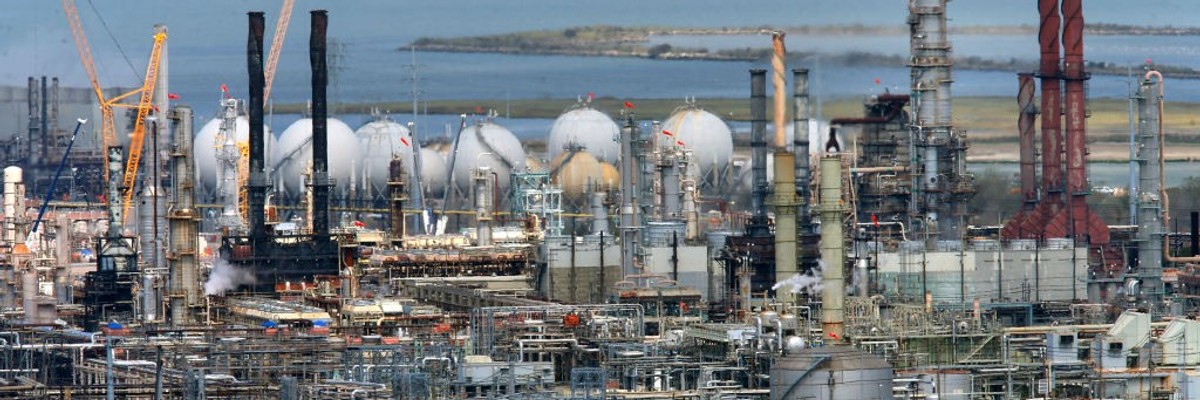Two Indigenous tribes in Washington state said Wednesday that they intend to force several oil giants "to help pay for the high costs of surviving the catastrophe caused by the climate crisis," as they filed lawsuits in the state's largest trial court.
The Makah Indian Tribe and Shoalwater Bay Indian Tribe filed two separate complaints in King County Superior Court against ExxonMobil, Shell, Chevron, BP, ConocoPhillips, and Phillips 66, saying the defendants must be held "accountable for their deceptive and unfair conduct, and pay for the damage their deceptive conduct has caused and will cause for decades to come."
The lawsuits—among dozens filed against Big Oil since 2017—detail the extent to which the companies have long known that their fossil fuel extraction would drive planetary heating and the resulting sea-level rise, extreme weather, public health crises, and other impacts of the climate crisis, which now costs the U.S. roughly $150 billion per year just in damages from hurricanes and other weather disasters.
"We are seeing the effects of the climate crisis on our people, our land, and our resources. The costs and consequences to us are overwhelming," said Timothy Greene Sr., chairman of the Makah Tribal Council. "We intend to hold these companies accountable for hiding the truth about climate change and the effects of burning fossil fuels."
"We are facing hundreds of millions of dollars in costs to relocate our community to higher ground and protect our people, our property, and our heritage. These companies need to be held accountable for that."
Newly uncovered documents revealed earlier this year that scientists at Shell warned executives of the climate impact of the company's products in the 1980s, and an analysis published in Science in January showed that 63-83% of the global warming projections documented by Exxon scientists between 1977 and 2003 were accurate.
"These oil companies knew their products were dangerous, yet they did nothing to mitigate those dangers or warn any of us about them, for decades," said Charlene Nelson, chairwoman of the Shoalwater Bay tribe. "Now we are facing hundreds of millions of dollars in costs to relocate our community to higher ground and protect our people, our property, and our heritage. These companies need to be held accountable for that."
The tribes said in their complaints that they are "particularly vulnerable" to rising sea levels because their reservations are adjacent to the Pacific Ocean, and they have already incurred "significant costs" as they try to mitigate its risk by preparing to build and move housing and government buildings to higher ground.
The tribes accused the companies of creating a "public nuisance" and violating Washington's Products Liability Act by misrepresenting and intentionally concealing the risks involved in their fossil fuel extraction activities. They asked the court for jury trials and requested that the court order the companies to fund "an abatement fund to be managed by the tribe[s] to remediate and adapt [their] Reservation lands, natural resources, and infrastructure."

